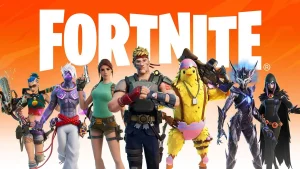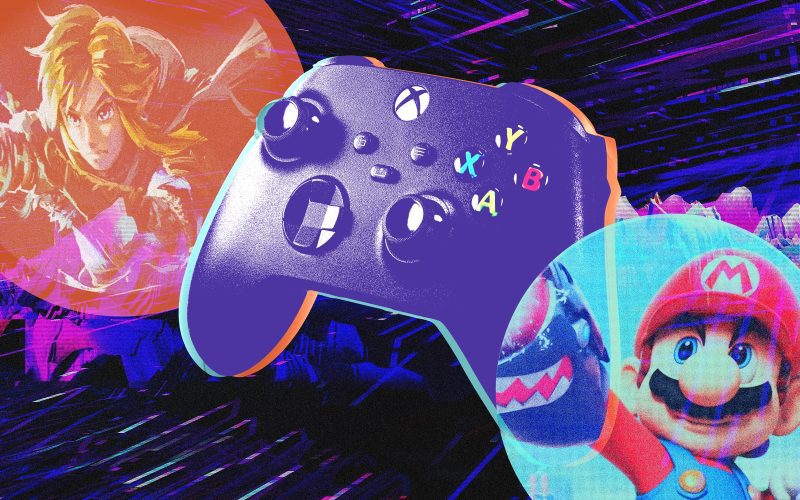Introduction
In the past few decades, video games have gone from being a hobby for a few to becoming a major part of entertainment worldwide. Millions of people play video games, and these games have an impact far beyond just entertainment. Video games are changing the way we interact with others, learn, and even how we feel. This article will explore how the rise of gamers is shaping our world and what this means for society.
The Evolution of Video Games

Video games have come a long way since the early 1970s. Back then, games like Pong were very simple, with basic graphics. Over time, technology has helped video games improve, making them more exciting and fun to play. Today, games feature amazing graphics, realistic worlds, and stories that can make players feel like they’re part of the game.
The gaming industry is huge now. It makes more money than movies and music combined. One reason for this growth is the rise of online games. People from all over the world can now play together, and many popular games have millions of players. With the help of smartphones, games have become easier to access, allowing even more people to join in.
Video Games and Social Connections

One way video games are changing society is by how they help people connect. Online games let players team up or compete with others, no matter where they are. Games like Fortnite and Minecraft have huge online communities. Many gamers form friendships with people they’ve never met in person, and these relationships can be just as important as those made offline.
Live streaming platforms like Twitch and YouTube Gaming have also played a role in bringing gamers together. Players can watch others play, learn new strategies, and even chat with their favorite streamers. This has created new forms of socializing and has helped build a global gaming community.
Even during tough times, like the COVID-19 pandemic, video games became a way for people to stay connected, especially when meeting in person wasn’t possible. It’s clear that video games offer more than just entertainment—they provide a space where people can come together and form connections.
Video Games as a Learning Tool

Video games are not just for fun they can also be used as a way to learn. Many modern games teach important skills, like problem-solving and teamwork. Some games are even designed for educational purposes. For example, Minecraft: Education Edition is used in schools to help students learn subjects like math and science in an engaging way.
Games like SimCity and Civilization help players understand complex ideas like economics and city-building. Games like these are good examples of how video games can make learning fun and interactive. As more schools begin to use video games in their teaching, we may see a bigger role for games in the education system.
Video Games and Mental Health

Video games are also having an impact on mental health. Many players use video games as a way to relax or escape from the stresses of everyday life. Playing a game can provide a break and offer a sense of achievement when completing challenges or missions.
However, video games and mental health aren’t always straightforward. While many games can help people feel better, some may lead to negative effects. For example, playing too much can cause problems with social life or schoolwork. Some people might also become addicted to gaming, which can harm their mental health.
That being said, there are games designed specifically to help people with mental health. Games like Celeste and Animal Crossing: New Horizons focus on positive, calming experiences. These games can help people relax and reduce anxiety. It’s clear that video games can have both positive and negative effects, and it’s important to play responsibly.
Video Games and the Economy

The video game industry has become a major economic driver. It supports many jobs, from game designers to marketers and even professional players. Esports, or competitive video gaming, has grown into a global business. Major tournaments, like League of Legends championships, offer huge prize money, and professional players have millions of fans.
As technology advances, new areas of business are opening up in the gaming world. Virtual reality (VR) and augmented reality (AR) are changing the way people experience games, and these technologies have the potential to create new industries and job opportunities.
Esports, in particular, is a booming industry. The popularity of live-streaming and esports tournaments has led to a new wave of sponsorships and advertising, making gaming a profitable business. As video games continue to grow, they’ll likely become even more important for the economy.
How Video Games Help with Social Skills

Video games also help players develop social skills. Online games, like Fortnite or League of Legends, allow players to work with others to achieve common goals. Players must communicate, make decisions together, and sometimes even resolve conflicts. This teamwork can help players build stronger social skills. In some cases, people make lasting friendships through online gaming, which shows that video games can be a place to meet new people and create strong bonds.
Video Games as a Form of Art

Video games are becoming more than just a way to pass time—they’re starting to be seen as a form of art. The designs in some video games are beautiful, with amazing landscapes and creative characters. The stories in these games can be just as powerful as those in movies or books. Games like The Last of Us or Journey are known for their emotional depth, where players connect with characters and experience meaningful stories. As technology improves, we’re seeing more video games that offer not only fun but also powerful artistic experiences.
Video Games and Family Time

Video games can also bring families together. Many games are designed for multiple players, meaning family members can play together. Games like Mario Kart or Super Mario Bros. are fun for players of all ages, making them perfect for family game nights. These shared experiences allow families to bond, laugh, and work together to accomplish in-game goals. For many families, playing video games together has become a regular way to spend time and enjoy each other’s company.
The Changing Role of Video Games in Society
As video games continue to evolve, their role in society is changing. What was once seen as a hobby for a small group of people is now a mainstream activity enjoyed by millions. Video games are influencing not just entertainment, but culture, education, and even mental health. With new technologies like virtual reality and the rise of esports, video games will keep evolving. It’s clear that video games are here to stay, and their impact on society will continue to grow in exciting new ways.
Video Games and Their Global Impact

Finally, video games have a global impact. People around the world play games, and gaming has become a shared experience across different cultures. International gaming competitions and online multiplayer games allow players from different countries to connect and work together. Games like League of Legends and Fortnite have a global fanbase, with millions of players from all corners of the world. The worldwide reach of video games has helped them become a universal language of entertainment, making gaming a global community.
The Challenges of Video Games
While video games have many benefits, they also come with some challenges. Spending too much time playing can affect other parts of life, such as school, work, and relationships. Some people may also become addicted to gaming, which can lead to mental health issues. Additionally, there are concerns about violence in certain games, and whether it affects behavior in real life. It’s important for players to enjoy games in moderation and choose games that are positive and healthy.
The Future of Video Games

The future of video games looks bright. As technology continues to advance, games will become even more realistic and engaging. Virtual reality (VR) and augmented reality (AR) will offer new ways to play and experience games. With the rise of esports and live-streaming, gaming will continue to grow as a form of entertainment. Video games will likely play a bigger role in education, mental health, and the economy, making their impact on society even stronger in the years to come.
Comparing Traditional Entertainment with Video Games
Here’s a comparison of how traditional entertainment like TV and movies stacks up against video games:
| Aspect | Traditional Entertainment | Video Games |
|---|---|---|
| Interactivity | Passive (viewers just watch) | Active (players make decisions and control the game) |
| Social Engagement | Limited (mostly solitary) | High (online communities and multiplayer) |
| Learning Opportunities | Limited educational value | High (critical thinking, strategy, simulations) |
| Escapism | Temporary (watching movies or shows) | Immersive (getting lost in game worlds) |
| Cultural Impact | Influenced by media companies | Diverse, with global reach and new cultures |
Conclusion
The rise of gamers has changed the way we experience entertainment, connect with others, and even learn. Video games are no longer just a hobby they are a powerful force in society. They influence education, mental health, and even the economy.
As technology continues to improve, video games will keep evolving and impacting more areas of our lives. The future of gaming looks bright, with more opportunities for learning, connecting, and having fun. It’s clear that video games are here to stay, and their role in shaping society will continue to grow in exciting ways.












